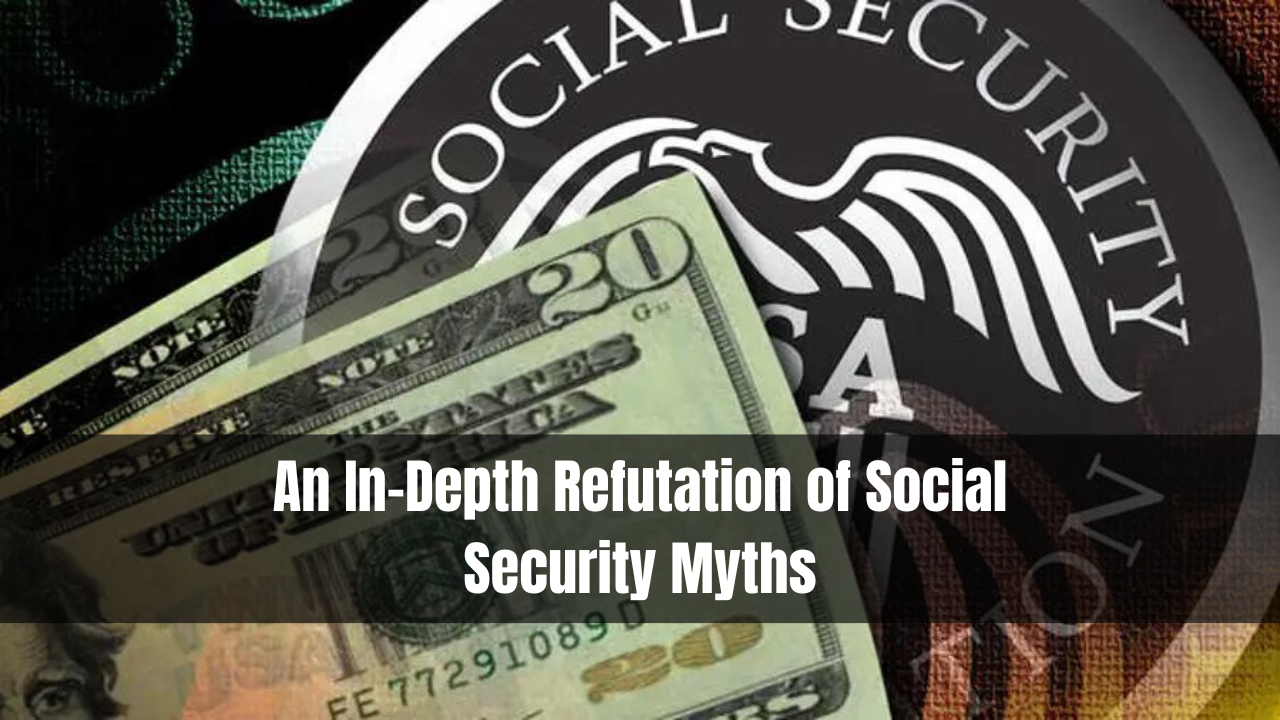An In-Depth Refutation of Social Security Myths. Myths and misconceptions surrounding Social Security have multiplied over the years, often leading to misguided beliefs about the program’s fiscal health. Recently, an article on Slate brought together various fallacies about Social Security, creating a concentrated hub of misinformation.
[irp]Unveiling the Misinformation Duo
Slate orchestrated a dialogue between Eric Boehm, a writer for the conservative magazine Reason, and Celeste Headlee, titled “Social Security Doesn’t Make Sense Anymore.” Unfortunately, the approximately 2,000-word piece was riddled with misconceptions, inaccuracies, misrepresentations, and outright falsehoods about Social Security, prompting a comprehensive debunking.
The Reality of Social Security Income for Seniors
One prevalent misconception addressed in the article suggests that Social Security primarily benefits wealthier Americans, implying that those funding the program through payroll taxes are supporting a leisurely lifestyle for retirees.
However, the truth, as highlighted by Kathleen Romig, is that most people aged 65 and older rely significantly on Social Security for their income, with the poverty rate among this demographic dropping from 38% to 10.3% due to the program.
Challenging the Notion of Means-Testing
A popular myth suggests that means-testing Social Security by cutting benefits for wealthier recipients, such as Warren Buffett and Bill Gates, would save the program.
However, the data reveals that the number of millionaires receiving Social Security is minimal, and the impact of means-testing would need to target those with around $70,000 a year in non-Social Security income, not millionaires.
Questioning the Retirement Age Proposal
The article dissects Boehm’s proposal to raise the retirement age, emphasizing that the average person did not die before qualifying for Social Security. Life expectancy intricacies related to race, education, and income are highlighted, pointing out the adverse effects of raising the retirement age on certain demographics.
Social Security as a Welfare Program
Boehm’s characterization of Social Security as a “welfare program” is debunked, emphasizing that Social Security is a contributory system funded entirely by beneficiaries through the payroll tax. It goes beyond being just an old-age pension, encompassing disability benefits and insurance for spouses and children.
Dispelling the Myth of an Impending Social Security Crisis
The article challenges the claim that Social Security is on the verge of a crisis in the 2030s, asserting that the program will still be able to pay three-quarters of all scheduled benefits. The cost of Social Security is examined in the context of GDP, dispelling the notion that it is ballooning rapidly.
A Call for Informed Discourse
Boehm and Headlee’s attempt to discuss Social Security issues is criticized for lacking essential information and research. The call for a more informed discourse on Social Security is emphasized, debunking prevalent myths and ensuring a more accurate understanding of the program’s dynamics.
[irp]Conclusion
Debunking the myths surrounding Social Security is crucial for informed public discourse. Understanding the program’s intricacies dispels misconceptions, paving the way for constructive conversations about its future and ensuring accurate policymaking.






